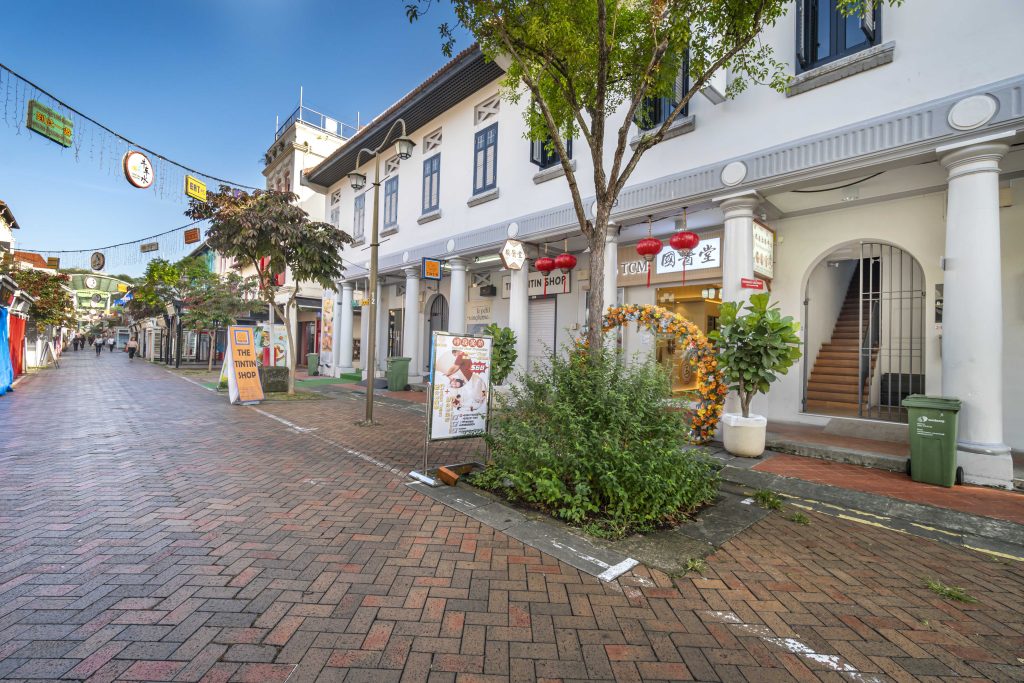Chinatown TCM: Unlocking Wellness Through Traditional Healing
- G&G TCM
Embracing Holistic Health with Chinatown TCM
In the bustling heart of Chinatown, Traditional Chinese Medicine (TCM) continues to thrive as a beacon of holistic health. Rooted in centuries-old practices, Chinatown TCM offers a comprehensive approach to wellness that emphasizes balance, prevention, and individualized care.
The Foundations of Traditional Chinese Medicine
TCM is built upon the concept of Qi (vital energy) and the balance of Yin and Yang within the body. Practitioners aim to restore harmony through various modalities, including acupuncture, herbal medicine, cupping, moxibustion, and Tui Na massage. These treatments are designed to address not just symptoms but the underlying causes of health issues.
Acupuncture: Stimulating the Body’s Natural Healing
Acupuncture involves inserting fine needles at specific points to stimulate energy flow and promote healing. It’s commonly used for pain relief, stress reduction, and improving overall well-being.
Herbal Medicine: Nature’s Remedies
Customized herbal formulas are prescribed to address a wide range of conditions, from digestive disorders to respiratory issues. These natural remedies aim to support the body’s self-healing processes.
Cupping and Moxibustion: Enhancing Circulation and Energy
Cupping therapy uses suction to improve blood flow and relieve muscle tension, while moxibustion involves burning herbal preparations near the skin to stimulate circulation and enhance energy.
Tui Na Massage: Balancing Body and Mind
This therapeutic massage technique focuses on meridian points to alleviate pain, reduce stress, and improve bodily functions.
Personalized Care in Chinatown’s TCM Clinics
Chinatown’s TCM clinics are known for their personalized approach to healthcare. Practitioners take the time to understand each individual’s unique constitution, lifestyle, and health concerns, crafting tailored treatment plans that address specific needs. Beyond treating ailments, TCM emphasizes preventive care. Regular treatments aim to maintain balance and prevent the onset of disease. For those with chronic conditions like arthritis or migraines, TCM offers alternative strategies for long-term management and relief
In today’s fast-paced world, stress and mental fatigue are common. TCM practices such as acupuncture and Tui Na massage have been shown to reduce anxiety, improve sleep quality, and promote a sense of calm, contributing to better mental health. Chinatown’s TCM clinics are deeply integrated into the community, offering accessible healthcare options that blend traditional wisdom with modern needs. Their presence ensures that holistic health services remain within reach for both locals and visitors seeking alternative wellness solutions.

Discover More About Chinatown TCM
Thinking about trying something beyond the usual pills and quick fixes? Exploring Traditional Chinese Medicine might be a good place to start, especially if you’re near Chinatown. The area isn’t just rich in culture and history; it’s also home to a wide range of trusted TCM clinics that have been serving communities for years. If you’re curious or maybe even skeptical, it won’t hurt to learn a bit more. Take your time, ask questions, and read up on what different places offer. To start, G&G TCM’s website lays out helpful info on their services and what to expect. Maybe your first step toward better health begins there.
For a deeper look into how our treatments are structured and how we support each patient’s health journey, we encourage you to explore our TCM clinic page for more insights.
FAQs Section
What is TCM and how is it different from Western medicine?
Traditional Chinese Medicine (TCM) is a holistic healing system that focuses on balancing the body’s energy (Qi) through treatments like acupuncture, herbal therapy, and massage. Unlike Western medicine, which often treats specific symptoms, TCM looks at the root cause and overall body harmony.
Why is Chinatown a popular place for TCM?
Chinatown is home to many experienced TCM practitioners and longstanding clinics. Its cultural roots and community trust make it a go-to destination for authentic, personalized treatments.
Is TCM safe for everyone?
In general, yes. Most TCM treatments are non-invasive and gentle. However, it’s still important to consult a licensed practitioner who can tailor the treatment to your individual condition or health history.
How long does it take to see results from TCM?
Some people feel better after just one session, while others might need ongoing treatments over several weeks. It depends on the nature of your condition and how your body responds.
Do I need a diagnosis before trying TCM?
Not necessarily. TCM practitioners usually begin with their own assessments based on your symptoms, tongue condition, pulse, and lifestyle. That said, it’s always helpful to bring any medical history you already have.

